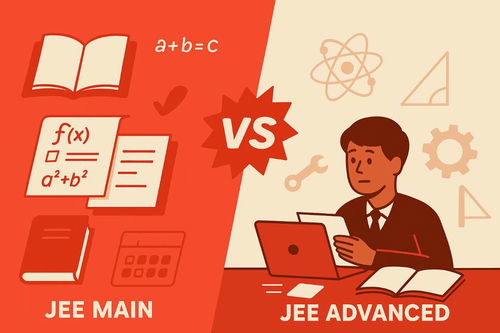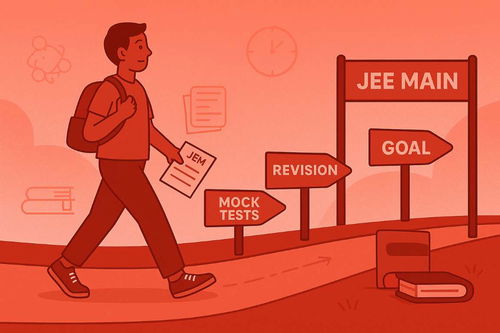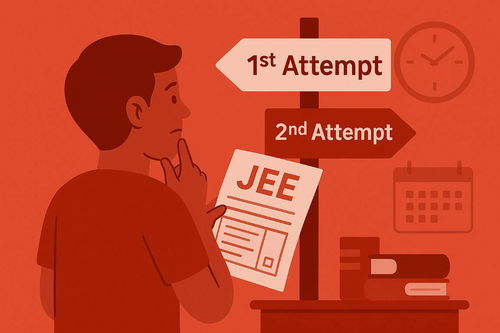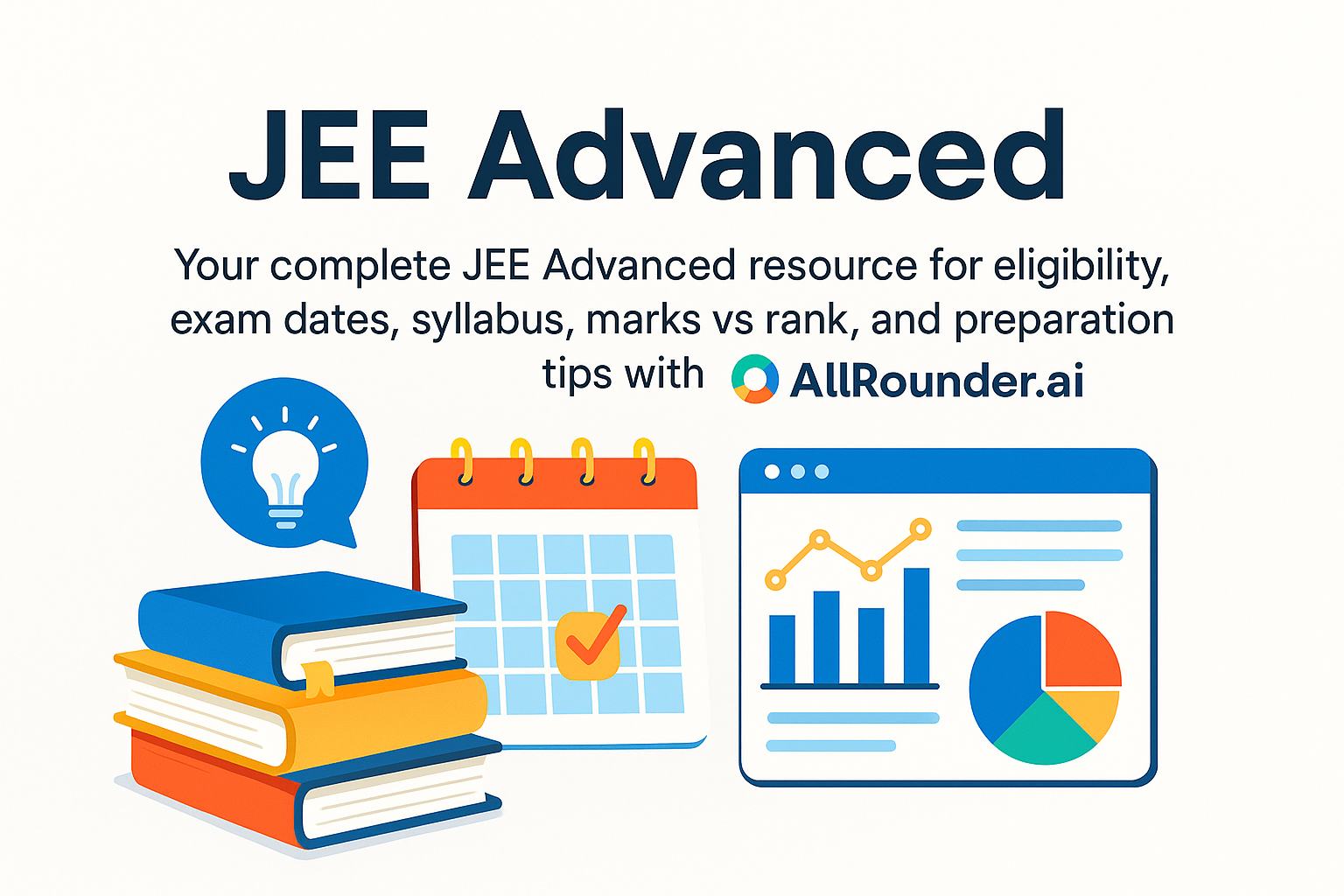Professional Courses
Industry-relevant training in Business, Technology, and Design
Categories
Interactive Games
Fun games to boost memory, math, typing, and English skills
Typing
Memory
Math
English Adventures
Knowledge
Important Chapters for JEE Main: A Subject-Wise List

If you're preparing for JEE Main, you've probably looked at the syllabus and thought, "Where do I even begin?" It's a valid question. With dozens of chapters spread across Physics, Chemistry, and Mathematics, it's easy to feel lost.
But here's the truth: not all chapters are created equal. Some appear frequently in the exam with high weightage, while others make rare appearances. In a competitive exam like JEE Main, where every mark matters, focusing on the most important chapters can give you a serious edge.
This guide breaks down those crucial chapters for each subject and explains how to prepare for them effectively. Whether you're just getting started or revising for the second time, this roadmap will help you study smarter, not harder.
Why It’s Crucial to Identify Important Chapters for JEE Main
JEE Main isn’t just about studying everything, it's about studying the right things in the right way. Prioritising important chapters offers several advantages:
- Helps reduce overwhelm
- Saves time during revision cycles
- Improves mock test performance
- Increases confidence in your prep
Instead of cramming the entire syllabus, smart aspirants look for patterns in past years’ papers and focus on high-impact topics. That’s exactly what we’ve done for you here.
Let’s explore each subject in detail.
Physics: Important Chapters for JEE Main
Physics often causes anxiety among students because it blends theoretical concepts with numerical problem-solving. But with the right focus, it can be one of the most scoring subjects.
Here are the most frequently asked Physics chapters in JEE Main:
-
Kinematics
Basic but essential. Velocity, acceleration, graphs, and equations of motion often feature directly or as parts of bigger questions. -
Laws of Motion
Expect conceptual questions on Newton’s laws, friction, and pseudo forces. -
Work, Energy and Power
Covers energy conservation and the work-energy theorem, a favourite among paper setters. -
Rotational Motion
Slightly advanced but highly rewarding if mastered. Questions involve torque, angular momentum, and moment of inertia. -
Gravitation
Small chapter, big returns. Direct formula-based questions are common. -
Oscillations and Waves
Learn SHM thoroughly. Wave optics and resonance concepts often appear in MCQs. -
Thermodynamics
Overlaps with Chemistry. Covers heat, temperature, and laws of thermodynamics. -
Electrostatics and Current Electricity
Very scoring. Circuit problems, Ohm’s Law, and capacitor combinations are common. -
Magnetism and Electromagnetic Induction
Understand the right-hand rules. Conceptual + calculation mix. -
Ray Optics and Modern Physics
Modern Physics is usually direct and formula-based: Photoelectric effect, radioactive decay, Bohr’s model — all must-dos.
Physics Preparation Tips
- Use concept videos and solved examples to understand tricky derivations
- Maintain a formula notebook, and revise it before every test
- Solve at least 30–40 numericals per chapter
- Focus on understanding concepts, not just memorising
Physics is all about clarity and practice. Once you're conceptually strong, you’ll start enjoying it, and scoring well in it too.
Chemistry: Important Chapters for JEE Main
Chemistry is unique. It blends theory (Inorganic), logic and calculations (Physical), and application (Organic). It’s also the subject where you can maximise accuracy in minimum time, if you prepare correctly.
Let’s break it down.
Physical Chemistry (Calculation + Theory)
-
Some Basic Concepts of Chemistry (Mole Concept)
Foundational for the entire subject. Learn dimensional analysis, molar mass, and empirical formulas. -
Atomic Structure
Spectra, quantum numbers, and electron configurations are always asked. -
Chemical Bonding and Molecular Structure
One of the most critical chapters across Physical and Inorganic chemistry. -
Chemical and Ionic Equilibrium
Involves Le Chatelier’s Principle, pH, buffer systems, both conceptual and numerical. -
Thermodynamics
Includes entropy, enthalpy, and spontaneity. Also helps in Physics. -
Electrochemistry and Redox Reactions
Nernst equation, electrolysis, and electrode potentials — scoring if understood well. -
Solutions and Colligative Properties
Boiling point elevation, Raoult’s law, frequent numericals.
Inorganic Chemistry (Mostly Theory)
-
Periodic Table and Periodicity
The bedrock of Inorganic Chemistry. -
Hydrogen and s-block Elements
Easy and often neglected. Very direct questions. -
p-block and d-block Elements
Focus on trends, oxidation states, and colour of compounds. -
Coordination Compounds
Questions involve IUPAC naming, hybridisation, and crystal field theory.
Organic Chemistry (Application-Based)
-
General Organic Chemistry (GOC)
Essential. Understand resonance, inductive effect, and carbocation stability. -
Hydrocarbons, Haloalkanes, Alcohols and Phenols
Reaction mechanisms are key. -
Aldehydes, Ketones, Carboxylic Acids, and Amines
Learn named reactions, oxidation-reduction pathways. -
Biomolecules and Polymers
Mostly theory, but easy marks.
Chemistry Preparation Tips
- Study Inorganic strictly from NCERT
- Practice reactions using flowcharts
- Use flashcards for reagents and mechanisms
- Master Physical Chemistry numericals through repeated problem-solving
Chemistry is often the tie-breaker subject. Many top scorers rely on their accuracy and speed in Chemistry to outperform others.
Mathematics: Important Chapters for JEE Main
Math is feared because of the time it takes, but it also offers the highest potential for score gains.
Here are the chapters you cannot afford to ignore:
-
Quadratic Equations and Complex Numbers
They’re almost always there, and often combined in application-type questions. -
Sequences and Series
Covers arithmetic, geometric, and harmonic progressions. Also, sums and means. -
Permutations and Combinations, Probability
Conceptual clarity is a must. Repeated every year. -
Binomial Theorem and Mathematical Induction
Quick scoring chapters. -
Matrices and Determinants
Easy once practised, questions on inverse, rank, and systems of equations. -
Limits, Continuity, Differentiability
Concepts lead into Applications of Derivatives. -
Application of Derivatives and Integration
Most students find this tough. Practice is key. -
Differential Equations
Easy to score if you remember the standard forms. -
Coordinate Geometry (Lines, Circles, Parabola, etc.)
Visualisation helps. Know the standard equations well. -
3D Geometry and Vector Algebra
Important and often misunderstood. Practice diagram-based questions.
Maths Preparation Tips
- Start with easy chapters like Binomial and Probability to build confidence
- Keep a formula sheet and revise it weekly
- Practice a mix of objective and subjective questions
- Focus on time management and accuracy
Time yourself while solving JEE Main-level papers to simulate exam conditions.
How These Chapters Were Identified
This list isn’t guesswork. It’s backed by:
- Previous year question paper trends
- Insights from JEE coaching institutes
- Feedback from rank holders
- Official NTA weightage data (when available)
- Academic expert consensus
While no one can predict exact questions, these chapters consistently appear across all sessions and years.
Balancing Strategy: Focus vs Full Coverage
Here’s how to balance important chapters with the full syllabus:
- Spend 60–70 per cent of your prep time on high-yield chapters
- Use weekends or buffer days for low-weightage topics
- Take weekly mock tests to adjust your focus dynamically
- Don’t ignore weak areas, strengthen them gradually
This dual approach gives you the best shot at maximising your JEE Main score.
Final Thoughts
JEE Main success isn’t about doing everything; it’s about doing the right things with precision. Prioritising important chapters for each subject gives you a competitive advantage, whether you're revising for the first time or just weeks before the exam.
Here’s what you should remember:
- Focus on conceptual clarity and regular practice
- Revise smartly and don’t skip past-year questions
- Use resources that help you track chapter-wise performance
- Build momentum through small daily wins
Your JEE journey is a marathon, not a sprint. But with a focused strategy and clear priorities, you can finish strong.
Stay consistent. Stay curious. And most importantly, believe that you can.
You’re not just preparing for a test. You’re preparing for your future.

Learn how negative marking works in JEE Main 2025 and how to avoid it with practical, proven strategies.

Learn how to prepare for JEE Main 2025 with a proven, winning strategy. Get a detailed plan, subject-wise tips, and...

Learn the chapter-wise weightage for JEE Main 2025 across Physics, Chemistry, and Maths. Prioritise smartly and...

Discover the most important chapters for JEE Main 2025 across Physics, Chemistry, and Maths. Focus your prep smartly...

Discover top JEE Main books for Physics, Chemistry & Maths. Learn how NCERT & reference books pair with AllRounder.

Looking for free JEE Main mock tests to boost your preparation? Discover the best platforms, tips, and strategies to...

Discover what scores and percentiles are needed to secure seats in top NITs, IIITs, and GFTIs. Learn how category...

Understand the exact difference between JEE Main percentile and rank. Learn how scores are normalized across...

Understand the JEE Main scoring system to maximize your result. Learn the marking scheme, how to handle negative...

Confused about the JEE Main attempt limit? This guide clarifies how many times you can appear, the eligibility...

Wondering how many times you can appear for JEE Mains? This guide explains the total attempts allowed, session...

Discover the key differences between JEE Main and JEE Advanced in terms of syllabus, pattern, difficulty, and prep...

Confused about JEE Main qualification rules? This blog gives you a detailed checklist of eligibility criteria,...

Explore this simple, step‑by‑step guide to the JEE Main counselling process. Learn how to register, fill choices,...

Curious about how many times SC students can attempt JEE Main? This complete guide covers JEE Mains attempt rules,...

Want to score 200+ in JEE Main? This practical guide gives you proven tips, subject-wise strategies, mock test...

Wondering how the JEE Main exam is structured? This complete guide breaks down the official JEE Main exam pattern...

Learn how to crack JEE Main on your first attempt with proven strategies. This guide covers planning, conceptual...

Learn how many JEE Main attempts you can take after Class 12. This guide covers eligibility, attempt limits, subject...

Learn about the JEE Main age limit requirement and key eligibility rules. Understand the attempt policy, Class 12...

Discover the most important topics for the JEE Main exam in Physics, Chemistry, and Mathematics. Learn subject-wise...

Get a subject-wise preparation strategy for JEE Main step-by-step using smart tips and trusted resources from AllRounder.ai.

Looking to score high in JEE Main 2026? Discover expert preparation tips on creating smart study plans, mastering...

Confused about JEE Mains eligibility? This detailed guide explains JEE Mains eligibility criteria including...

Confused about JEE Main Attempts for ST Category? This detailed guide covers attempt limits, age relaxations,...

Wondering how many times OBC candidates can appear for JEE Mains? This detailed guide explains JEE Main Attempts for...

Dropping a year for JEE Mains? This in-depth strategy guide helps droppers optimise their JEE Main attempts with...

Confused about how many times you can appear for JEE Main? This guide explains the number of JEE attempts, session...
Resources
-

Your complete JEE Advanced resource for eligibility, exam dates, syllabus, marks vs rank, and...
-

Understand the entire JEE Main process, from application and eligibility rules to the exam...
-

Explore the IB Board – a global curriculum emphasizing holistic, student-centered learning...
-

Learn about CBSE – India’s national school board offering a standardized curriculum, NCERT...
-

Explore everything about the ICSE board – its curriculum, subjects, exam format, and academic...
